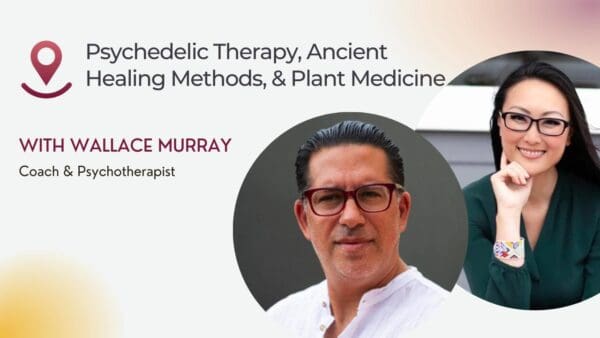Psychedelics may be used as a treatment to heal trauma caused by adhering to a religion, especially a high-demand, orthodox religion. Healing from religious trauma, sometimes called religious trauma syndrome, is a long road often marred with deep emotional pain and possible ejection from close-knit religious communities.
Healing from religious trauma may be very difficult—but for some people leaving their religious upbringing, psychedelics and psychotherapy can be used to help heal the symptoms of psychological and cultural trauma. Psychedelic-assisted therapy might offer relief for the painful symptoms of trauma and help former believers make spiritual and existential peace with their experiences.
Why religious trauma exists
While there are many countries in the world that value religion, the U.S. is a hotbed of religious zeal. It has been since its inception. As puritans and other protestants left Europe to find more religious freedom in the 17th-19th centuries, the United States was a place to settle and propagate religious piety.
In America, the United States Bill of Rights actively supports and upholds the freedom of religion, along with many other countries around the world and the United Nations which support similar human rights efforts.
The majority of Americans are, generally speaking, more actively religious than Europeans, Australians, or Canadians despite shared American colonial history and cultural ties.
Religion and spirituality are deeply personal aspects of our human experience. Many humans born into religious frameworks tend to remain with them their entire lives.
In the last few decades, however, there has seemed to be to be a larger movement away from religion. This is likely due to the fact that with the expansion and accessibility to knowledge available on the internet, we are looking less to religious frameworks to give us a sense of direction and purpose.
As Americans and the world at large move further away from religious constructs and adherence to harmful religious dogma, a residue remains in its wake. Religious trauma is real and more prevalent than many people may realize.
In parts of the world where freedom of religion does not exist as it does in certain countries, high-demand religions and theocracies oppress millions of people. Enjoying religious freedom is a human right, but it is still often a taboo to discuss how some religions can be psychologically harmful to their followers.
It is often difficult for those in the west who enjoy religious freedom to understand how people like their neighbors, friends, or coworkers can remain in high-demand religions while being traumatized by them.
What are the symptoms of religious trauma?
For many reasons, discussing religious trauma is taboo. Even in the field of psychology, there seems to be inadequate information and resources addressing the psychological and emotional fallout caused by lifelong adherence to a high-demand religion. The symptoms of religious trauma include symptoms similar to those who are suffering from conditions like PTSD, Borderline Personality Disorder, Major Depressive disorder, and Obsessive-Compulsive Disorder. The list goes on.
Religious trauma primarily stems from the strict adherence to high-demand religious dogma and social constraints that often accompany requiring strict compliance to religious rules and laws. Being a member of a high-demand religion involves meeting requirements to prove moral worthiness and piety, often not only to a deity but to the social strata and other members or followers of that particular religion. Since 2016, around 8 million former Evangelical Christians have left their religions. These former believers are nicknamed Exvangelicals.
Individuals raised in such constraining environments often find themselves in crises—either emotional or physical, if they opt to no longer adhere to the tenets of their religion. Parting with the religion you were raised in leaves behind emotional and psychological scars that are traumatic. And for those individuals who did enjoy positive spiritual experiences while they were members of a high-demand religion, a gaping existential hole of confusion is often left behind.
Who uses psychedelics to heal from religious trauma?
Leaving a strict religion is disorienting enough, and finding a good counselor or therapist that is adept at handling their client’s experience with religion and offering the care required to guide them out can also be a difficult challenge. Finding a support network of others who have left the religion might be the only access to a community these people may have.
One such interesting community that has found not only community support, but emotional and spiritual healing using psychedelics is a group of people who have left the Church of Jesus Christ of Latter-Day Saints, also known as Mormons. This particular group of former believers has built a community for healing from the trauma they experienced as followers of Mormonism.
The Mormons on Mushrooms podcast highlights the stories of these individuals as they moved away from the religious trauma they experienced in a high-demand religion towards healing and wholeness. These former Mormons talk about their psychedelic use and share stories of profound spiritual experiences, describing out-of-body experiences, ego death and transformation, and feelings of deep empathy for those who remain in the faith.
Founders of the Mormons on Mushroom podcast and some of their guests were interviewed by a local media channel where they discussed using psychedelics to heal trauma they experienced as devoutly religious people. These former members of an orthodox faith expressed a desire to use psychedelics to gain spiritual insights into their own process as a way to guide them out and heal their pain.
How spiritual or mystical experiences using psychedelics can heal trauma
Whether or not religion is the cause of trauma, psychedelics have been effective at treating trauma occurring with PTSD, major depression, suicidality, and other mental health conditions.
Psychedelics have also been shown to promote mystical experiences, which can be therapeutic for those who have left their religion. This can be an avenue for healing for those who still find peace and solace in spirituality as they reclaim it for themselves.
One study showed how psychedelics activate centers of the brain that may be responsible for the spiritual insights, archetypes, visual imagery, and heightened emotions experienced under their influence. Those who participated in this study using a single dose of psilocybin reported there was virtually no difference between the psychedelic experience and other spontaneous, profound spiritual experiences. Mushrooms containing psilocybin, after all, are known as entheogens which means, “generating the divine.”
The trauma and existential dread that can face those who leave their religion can be transformed using psychedelics. Psychedelics allow us to explore our minds and our world with a renewed sense of wonder and mystery about the nature of consciousness and what it means to be alive.
New research has shown that even some religious leaders have found using psychedelics allowed them to feel closer to God, or they felt a sense of happiness and existential wholeness.
As psychedelic-assisted therapy is more widely accepted for treating a variety of mental health conditions, including PTSD, those counselors or facilitators trained in faith transitions may find a niche for helping those who suffer from religious trauma using psychedelics as an aid to therapy.








